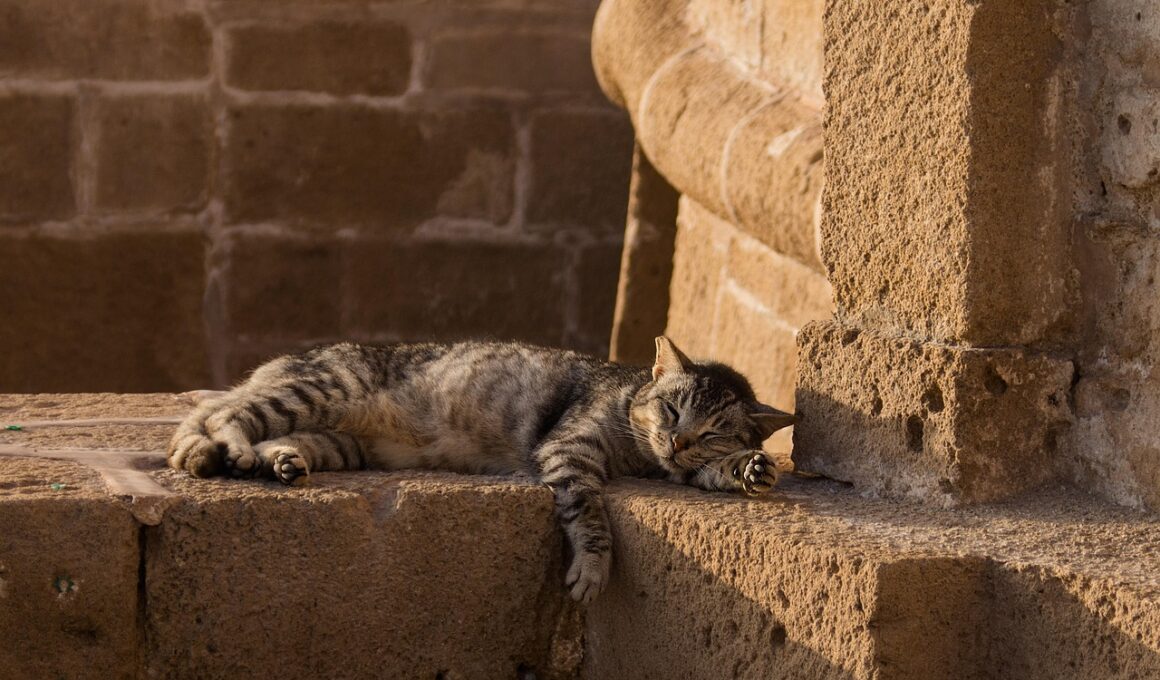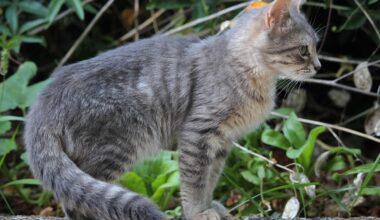Early Signs of Feline Calicivirus to Watch For
Feline Calicivirus (FCV) is a common viral infection affecting cats, particularly those in shelters or multi-cat environments. It can cause various symptoms that may be mild or severe, making it crucial for cat owners to be vigilant. Early detection of FCV is essential to ensure timely treatment and prevent complications. One of the first signs of this virus is oral ulcers, which can occur in the mouth and cause discomfort. Cats may stop eating because of the pain associated with these sores. Another key sign is sneezing and nasal discharge, as the virus affects the respiratory system. Cats might exhibit lethargy and decreased activity levels as their bodies respond to the infection. If you notice these symptoms, it is advisable to consult with a veterinarian.
Feline Calicivirus can also lead to conjunctivitis, an inflammation of the eyes that may cause redness and discharge. Cats might develop swelling around the eyes, making them look tired or uncomfortable. Additionally, the virus often results in fever, which can be challenging to detect without veterinary help. Keeping track of your cat’s temperature can help identify any sudden changes that indicate illness. Coughing may also accompany other respiratory symptoms, so understanding when your cat is breathing differently is crucial. Some cats may show excessive salivation due to mouth ulcers, indicating pain or discomfort. If you see any of these signs, swift action is necessary. The prognosis for FCV is often good if addressed early, but waiting too long can result in severe health complications.
Understanding the Symptoms
In addition to the primary signs of Feline Calicivirus, cats often display secondary symptoms that amplify the need for immediate attention. Loss of appetite, or anorexia, frequently accompanies fun mouth sores, leading to significant weight loss and dehydration. Monitoring your cat’s food and water intake is essential during this period. It’s also worth noting that dehydration can progress fast, causing increased health risks. Cats may also experience changes in their coat, becoming dull or unkempt as their health declines. Their behavior might shift to become more withdrawn or irritable, as they may feel unwell and uncomfortable. This behavioral change is a clear signal that something is wrong and should not be ignored. Paying close attention to these nuances can help you catch the virus early before it results in severe health impacts.
Although FCV can be manageable, owners should recognize that stress can exacerbate the virus’s symptoms. Decreasing stress in a feline’s environment significantly impacts their ability to recover. Make sure your cat has a quiet and safe space to rest, reducing interactions with other animals until they recover. Avoid sudden changes in surroundings or routines, as this can lead to anxiety. Antiviral medications and supportive treatments can help manage symptoms, but prevention is the best course of action. You can prevent this killer virus by ensuring your feline receives their vaccines timely, minimizing their exposure to infected cats. Regular veterinary check-ups should be scheduled to monitor their health and to catch potential outbreaks early, as this approach will ensure a healthier, happier life for your beloved feline companion.
Prevention and Care
Preventing Feline Calicivirus starts with proper hygiene practices in multi-cat households. Keeping litter boxes clean helps reduce the risk of infections spread among cats. Additionally, regular cleaning and disinfection of common areas in your home can also thwart transmission. Isolating any newly adopted or sick cats can prevent the spread of FCV to other household members. Vaccination is a critical element in controlling the spread of the virus. Consult your veterinarian to ensure your cat receives its vaccinations on schedule and discuss modified live vaccines for maximum protection. Furthermore, it’s essential to avoid contact with cats that are unknown or appear sick. Recognizing the signs of illness in other animals can better prevent FCV from entering your home.
If your cat shows any symptoms related to Feline Calicivirus, promptly consult your veterinarian. They will likely perform a physical examination and consider diagnostic tests to confirm the infection. Early intervention is crucial for the best outcomes, as FCV can lead to secondary infections, which complicate recovery. Treatment may involve fluid therapy for hydration, medications to manage pain, and antibiotics for any secondary bacterial infections. Home care is also vital during recovery; ensure they have a calm and supportive environment. Soft, palatable foods may entice your cat to eat and maintain hydration levels. Always follow the veterinarian’s instructions on medication and dietary changes. Keeping a close watch on your cat’s progress is vital, and any worsening symptoms should be reported immediately.
Conclusion and Next Steps
In conclusion, being aware of the early signs of Feline Calicivirus can greatly impact your cat’s health. Symptoms like oral ulcers, sneezing, and lethargy are indicators that should prompt immediate attention. Maintaining basic hygiene and vaccination schedules can significantly reduce the risk of infection. Always monitor your feline’s behavior and physical condition to identify any unusual patterns early. If your cat develops any concerning symptoms, don’t hesitate to reach out to your veterinarian for personalized advice and interventions. Staying informed about your cat’s health will also make a significant difference in their quality of life. Managing stress and ensuring a nurturing environment will contribute positively to your cat’s recovery from this viral infection. Always remember that a proactive approach can ensure the longevity and health of your feline friend.
Understanding how serious Feline Calicivirus can become helps cat owners take preventive actions that safeguard their pets. Regular health checks and an environment that minimizes stress will be beneficial. Be sure to keep educating yourself and stay updated on feline health tips to promote the well-being of your companion. Accepting that vigilant support and observation are paramount allows owners to react quickly in clinical cases. All these factors together empower you to give the best care for your feline family members and could save them a significant amount of pain and suffering.


